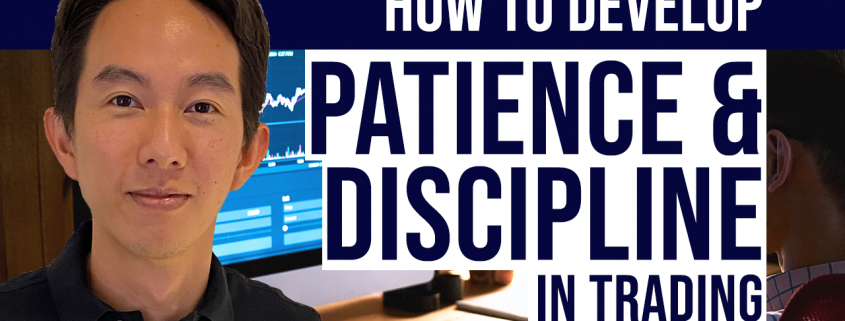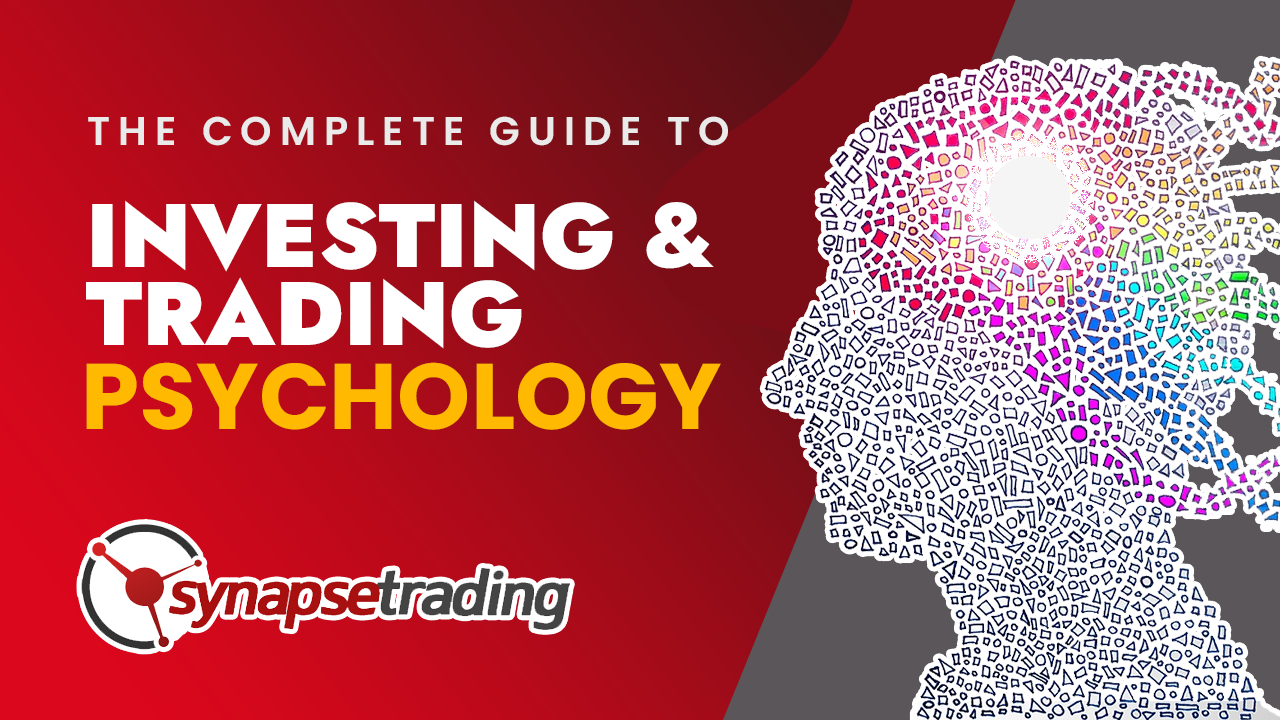How to Develop Patience & Discipline in Trading
Join our Telegram channel for more market analysis & trading tips: t.me/synapsetrading
Timing is an essential element in trading and investing.
For any product or market, if you buy and sell at the right time, you can make a lot of money, but if you get the timing wrong, you can also lose a lot of money.
And to get this timing right, you need to have the discipline and patience to WAIT for the right timing.
Table of Contents
Wait for the Best Opportunities
In trading, there is a time for action, and a time for inaction.
Unfortunately, for most people, they cannot stand inaction. Or perhaps they think that trading should be full of action.
Hence they keep trying to find opportunities to take action, even if they opportunities are not the best opportunities.
Let’s be honest, good opportunities are rare. And best opportunities are even more rare.
Trading is 99% waiting (and researching), and 1% action (executing the trade).
If you are doing the opposite, then you will end up with a lot of activity, but very little profitability.
As a trader, we should approach trading like a sniper. (As opposed to wielding a machine gun.)
- Do all the planning and stake out the target.
- Wait for the perfect timing to make the kill.
- Only pull the trigger when we have an excellent opportunity.
- Make every shot count.
Do Not Chase a Missed Trade
Back when I was doing full-time proprietary day-trading, we had to watch the markets closely for hours to wait for the best trading opportunities.
Sometimes, we could be eyeing a big juicy trade, and we all knew it would likely be the trade of the day.
It could be an unscheduled news announcement, price taking out a key level (breaking support/resistance), or a pullback opportunity to enter a trend.
Whatever it was, the event usually happened quickly, hence the window of opportunity is usually very small. So we would all wait patiently for this trade, while monitoring the prices.
Now here’s the tragic part.
After waiting for hours, you suddenly have to go to the restroom.
So you rush for a 5-minute toilet break and dash back to your trading desk, only to find that the event you had been waiting for happened while you were in the toilet.
Maybe the breakout happened and the price has gone up a lot from your original planned entry price.
The big question is, will you still want to take the trade even though it is no longer optimal?
Would you want to chase this trade?
Many people would, but it is a bad idea.
Because it causes you to deviate from your trading plan.
And when you end up taking sub-optimal trades, you end up with sub-optimal results.
It is painful, but it would be wiser to pass on this trade, and wait for the next better opportunity.
After all, it is better to miss the boat, than to leave on one full of holes.
A Good Entry Allows Easy Risk Management
Now you might be wondering, what’s the link between entry timing and risk management?
If you execute a trade according to your trading plan, you should already have a planned stoploss for every trade.
So if you make an entry using the entry price on the trading plan, then risk management is easy because you can just use the planned stoploss.
However, if you deviate from the trading plan (eg. chasing a missed trade), then the plan becomes useless.
For example, if you planned to go long, with a reward-to-risk ratio of 2:1, but you entered late, and price has already gone way above your intended entry price, where are you going to place your stoploss?
If you use the old stoploss price, then you will have to adjust down your lot size, otherwise your risk will be higher than your intended risk.
And even if you do that, your reward-to-risk ratio is now less than 2:1, so is this still considered a good trade?
Emotional Traps
We all hate losing money, and hence we sometimes get trigged emotionally by losing trades, and end up in a downward spiral of bad decisions.
Here are 2 common self-destructive behaviours:
- Impulsive trading
- Revenge trading
a) Impulsive Trading
This usually happens due to greed and hope, where people are afraid of missing out (FOMO), so they start to see every trade as a great opportunity, and want to take as many trades as possible.
When this happens, they usually do not bother to follow their trading plan (assuming they have one in the first place) or do any research, and usually just go with “gut feel” to justify their trading decisions.
To be honest, this is more like gambling than trading.
If you are new to trading, and you start finding trading opportunities on every chart you see, then you might want to watch out for impulsive trading.
Make sure you stick strictly to your trading setups, and avoid using random chart analysis to justify your impulsive trades.
b) Revenge Trading
This usually happens after a particularly unlucky trade (price almost hitting your target then reversing to hit your stoploss), or a string of losses.
People start to feel cheated or angry, or their ego might hit take a hit after this string of “failures”.
As a result, they take more trades because they want to win, in order to “take revenge on the market”, or “teach the market a lesson”.
At this point in time, they obviously no longer follow the trading plan or any risk management, and trading in this bad psychological state will often result in even more losses.
This is why it is often a good idea to take a break from trading after a string of losses, so that you can mentally recalibrate yourself.
In the next chapter, will learn how to deal with losses in a constructive and beneficial way.

If you would like to learn more about trading psychology, also check out: “The Complete Guide to Investing & Trading Psychology”
 Our flagship mentoring program is suitable for both beginners and advanced traders, covering the 4 strategies which I used over the past 15 years to build up my 7-figure personal trading portfolio.
Our flagship mentoring program is suitable for both beginners and advanced traders, covering the 4 strategies which I used over the past 15 years to build up my 7-figure personal trading portfolio.
 If you're looking for a reputable brokerage that covers all products (SG stocks, US stocks, global stocks, bonds, ETFs, REITs, forex, futures, crypto) and has one of the lowest commissions, this is what I currently use.
If you're looking for a reputable brokerage that covers all products (SG stocks, US stocks, global stocks, bonds, ETFs, REITs, forex, futures, crypto) and has one of the lowest commissions, this is what I currently use.
After trading for 18 years, reading 1500+ books, and mentoring 1000+ traders, I specialise in helping people improve their trading results, by using tested trading strategies, and making better decisions via decision science.





Leave a Reply
Want to join the discussion?Feel free to contribute!